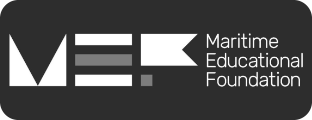Coming Ashore Podcast - Philip Gregson
Posted on 14 June 2021 by Tom Saunders
On the next episode of the Coming Ashore podcast, Karen Waltham is joined by Coming Ashore mentor Philip Gregson.
Would you rather listen? Listen on Spotify and ITunes. Or watch on Youtube.
Click here to find out more about the Coming Ashore programme. Where you'll find professional guidance, mentorship and work experience opportunities for transitioning to a career on land.
Karen Waltham:
Okay. Brilliant. Okay. So, hi, everybody, and welcome to the Marine Society's Coming Ashore program and podcast, the next in the series. And today I'm going to be talking to Philip Gregson. So good morning, Philip.
Philip Gregson:
Good morning.
Karen Waltham:
Firstly, thank you very much indeed for your time today, taking the time to talk to me, but secondly, and I think really importantly, is thank you for signing up to be a mentor actually on the Coming Ashore program. This is just an informal chat, nothing, if you like, particularly structured, but it's just a chat about you and your contribution to the program and really to allow other people just to learn a little bit more about you as a mentor. So, Philip, can we start, please, by just exploring... Give us a little bit of background to your personal career. What's your career been?
Philip Gregson:
Well, I went to sea when I was 16, as a lot of British navigating cadets did at the time, and I stayed with the same company for 13 and a half years.
Karen Waltham:
Which company was that?
Philip Gregson:
That was with... Well, they're defunct now. Furnace Withy shipping, which when I joined them had well over 200 ships. They were very big, and they included lots of well-known British shipping companies as part of their group. So there were lots of options for a good career with them. But after a few years, I ended up with one of their companies, called Pacific Steam Navigation, and their run was down through the Caribbean and the west coast of South America, three-month trips on the kind of ship you can see behind me.
Karen Waltham:
Wow.
Philip Gregson:
And it was a really good life. I enjoyed it immensely. And I stayed with them and did all my tickets and two masters and eventually got a job as chief officer with them. But then, probably as most people my age will remember, in the early '80s, British shipping companies were going through a really bad time and were selling ships and laying people off and it was quite bad, and I saw the end in sight. The company had already made people redundant and was selling ships. So I thought I needed to do something for myself. I wasn't going to sit around and wait to be made redundant. So I saw an advert in the paper for a degree course in a nautical science degree, and it said, if you've got a master's license, then instead of doing three years, you can do two, but instead of the first year you have to do a nine-week bridging course, and that was Liverpool Polytechnic. So I applied and got accepted onto this course. I was the only one on it. But anyway, for nine weeks-
Karen Waltham:
One-to-one tuition.
Philip Gregson:
Yeah. Well it wasn't like that. It was a lot of work on my own. I think I had six or seven hours of lectures a week, and the rest of it was working on my own, but I did the exams in maths, economics and law, which was to get me over the first year, and then I passed those exams and joined the second year. But as I was doing the exams, I was made redundant. So it all worked out really well, because I passed the exams, and three months later I joined the second year of the degree course and that worked out really well. And I enjoyed it. I enjoyed the studying. And at the end of that, I wasn't really sure what to do, but the people I spoke to at the college said, "Well, the best thing for you is to be a surveyor." So I thought, okay, I'll do that.
And at the time, even to be a surveyor, most companies were asking for a master's license and a degree before they would consider you. And eventually I did get a job in Dubai with a British company who had four or five overseas offices. And I started a career as a surveyor, which I really enjoyed as well, because it was really demanding. What you learn as a master is only the beginning when you start to be a surveyor. There are so many more things you need to know, and it can get really scary at times where you'll get instructed on a job to maybe do some ship damage or cargo damage, and you've never seen that before. Suddenly you're the expert and expected to advise what needs to be done.
Karen Waltham:
And had you come across surveyors as a master? Had you?
Philip Gregson:
No.
Karen Waltham:
No?
Philip Gregson:
I didn't sail as master, I only served as chief officer, but I never really came across surveyors whilst I was at sea. So it was a whole new experience, but I found it really enjoyable. I got into it quickly and within two years I was managing the office in Dubai, and I did that for another four years. So it wasn't just a case of doing survey work. I was also doing the finances, personnel, marketing, everything. Although it was a UK-based company, the manager of the office was just left to get on with things.
Karen Waltham:
Just thrown in the deep end.
Philip Gregson:
And as long as you turned a profit at the end of the year, London were happy.
Karen Waltham:
Thrown in at the deep end, literally, then.
Philip Gregson:
Yeah, but it was good experience. And then I suppose after the third year, I started thinking about, well, do I really want to do this for the next 25 years? And I decided I didn't. And at the time, I had a friend who had gone straight from being at sea to doing a law degree. And he'd said to me, "Well, look, why don't you do this? Why don't you study law and be a lawyer?" So I gave it some thought and I eventually got myself a place on a course, not the law degree, but because I already had a degree, the post-graduate course, which is just one year. It's now called the General Diploma in Law. And at the time it was... It's basically the same course. You learn the six basic law subjects, and then you continue with the route to being a solicitor.
So I did that. I started in 1990, when I was 38. I started studying law and I worked hard, long hours, when you're studying at home, and I passed all the exams and then did my two years' training and qualified as a solicitor. It was hard because I'd had well-paid jobs, and going back to being a student again and then starting at the bottom of the ladder, money was tight for quite a few years, but then I was looking at the long term. I wasn't thinking in the short term. I was thinking of, what do I want to do in the next 25 years? And I decided that being a solicitor working for a law firm, was better than being a marine advisor in a law firm, because there's no career path. You are a marine advisor or a marine manager, and that's it. Whereas if you're qualified as a lawyer, the route to partnership is open, and more responsibility and obviously more money.
Karen Waltham:
More money, yeah.
Philip Gregson:
Yes. So that's what I did. I qualified as a solicitor and started initially doing dry cargo work, which is bill-of-lading claims and charter parties and things like that. And after three years of that, I found another job with a small niche company where I could do admiralty law, which is basically casualty investigations for ships that have had fires, explosions, collisions, groundings, anything like that, salvage work. You do the investigations, you interview the crew, you prepare the witness statements and you deal with all the claims and court cases that arise out of that accident. And it's really, really interesting work and very hard work.
Karen Waltham:
Hard mentally, but hard emotionally as well, I would imagine.
Philip Gregson:
It is, because I hate to say it, but I've actually seen captains crying because they are so emotional that their ship has been involved in an accident and they didn't see how they could have avoided it. And you really have to be empathetic with them. You have to give them a lot of sympathy and a lot of time, sometimes a shoulder to cry on. Often you're in remote parts of the world and they need support. So you're not only there trying to do your job, you're trying to support them as well, because it's very difficult for them. But it was really enjoyable, and I was involved in some really interesting cases.
And then after 17, 18 years in that law firm, and I was a partner for 15 years of that, I decided that the time was to retire. I'd given all those years of working 24/7. Being a lawyer, I was often... I mentioned that a seminar recently that my wife had a stunt double, and I think that was taken the wrong way, but the fact was that I missed so many weddings, parties, even delaying holidays, coming back early from holidays, that sometimes my wife would find a friend who would take my place. She's Welsh, so going to the rugby matches in Wales is a real big treat for her, and on at least two occasions she had to take somebody else because I was off on the other side of the world doing a case of some sort. So that was her phrase, of having a stunt double to take my place whenever I wasn't there for something. But it works. I had a good life. I really, really enjoyed it, and I would recommend it to anybody.
Karen Waltham:
You sound very passionate. I like the word passion, because you end up with a passion for a job. I'm passionate about the role that I do and the role that I play within the industry. But I think you're passionate about the jobs you've done.
Philip Gregson:
Yeah. I've really, really enjoyed them. I'll admit, at times they've been so difficult. And when you're sat on a plane for hours on end and it takes you 30 hours to get somewhere, and then the ship's in the middle of nowhere and you think, oh God, what am I doing here? But once you start work, it's really good, really interesting. And I think I just love ships, and that helps enormously. And even though I've done the law, I've never lost my connection with ships.
Karen Waltham:
With the actual vessels themselves.
Philip Gregson:
Yeah. And that's the bit I love. The life at sea's good. I don't think it's as good now as it used to be, but I think it's still a good life and it can prepare you for so many different roles ashore, if that's what you want to do.
Karen Waltham:
Yeah. I think that's brilliant. Thanks very much, Philip. That's really interesting, fascinating hearing that. Let me talk about these ladies and gentlemen who are actually looking to make that transition, obviously this Coming Ashore program. Your experience, you explained what should you do when you were talking through what should my next role be, you were saying in your own career. What was your experience in terms of the difference between working and how you did your transition from sea to shore? I know it was, you explained, while you were doing your studies, and it happened, but what was your own personal experience of the change from being in a life at sea to the life ashore?
Philip Gregson:
Yeah. I found it really easy to make the transition from, from being at sea to coming ashore, and I think that the reason for that was I made the decision, and I think that's been a factor of my life is that when I've changed careers or done anything, it's me who's made the decision. I've not really waited for things to happen, therefore I've always felt in control, and I think that helps an awful lot. So going from ashore to studying, I didn't find it difficult. I was used to studying from doing mates and masters and the other licenses. So spending relatively long periods in college, it used to be six months, wasn't a problem for me, and working long hours, as you get older, studying gets more difficult. So if I had to work in the evenings and weekends, that wasn't a problem. I'd done that at sea for all those years. And there was always something to aim for, which does make a difference.
The transition for me was fairly easy. I didn't find it difficult, apart from the finances, of course, but then you learn to live with that.
Karen Waltham:
A lot of people have been explaining how, and certainly I've known, being an HR director within a shipping company, that transition, as you say, whether it's your decision or whether it's the business's decision at the time that you actually move. And that's the mindset, if you like, of getting people to think differently and that they have got the opportunity to make that choice themselves, as opposed to waiting for the business or the company to actually say, "It's time you came ashore," or have a shore-based job for you, but it's actually being in control of your own career. Whereas I think historically, and I'm being very general here, but I think historically, maritime have had an area of work where the career is owned by the business and company, if you stay with the company, and not you, and that difference. But I think the mindset's changing due to the demographics and the difference in the ages of people coming through now. They want that control, and I think that's where some of the difference is. Would you agree?
Philip Gregson:
And I kept that control to the end, yeah. Even when I retired, I was retiring early, but I made the decision. And even though I had to work six months' notice, that was fine, because I was in control all the way through. And I think that is important. You need to feel that you're in control of what's what's happening to you. I think if you have that control, you're more likely to make better decisions.
Karen Waltham:
Which is good. What about the style of working? I mean, obviously you say you love being on vessels and you loved your sea time. Did you find it very different in terms of... I don't want to lead into the leadership, necessarily, or the management, but was it being used to a nine-to-five and those kinds of jobs as opposed to being available 24/7, or is it because of the nature of the work that you went into, you didn't really change your hours as such?
Philip Gregson:
No. I would always caution against thinking that coming ashore is a nine-to-five job.
And if you are anything to do with shipping operations, whether it's as a surveyor or a lawyer or a broker, a P&I insurer, you can forget working nine-to-five, because ships don't work nine-to-five, and ships on the other side of the world, 12 hours' difference, you'll get a call in the middle of the night, and the PNI club: "There's a problem. The ship's run aground. We've had a fire on board." And it's not a nine-to-five job, and anybody who wants to come ashore and have a nine-to-five job, don't go into anything to do with ship operations, because it won't work.
Karen Waltham:
No, that's a good point. Talking about you being a mentor, what is it that you feel you can offer? What would you like to be able to? Because, as you say, you've had a rich fulfilling career and you've done a lot. You've covered a lot of ground. You've worked a lot, and globally, et cetera. What do you think that you would like to be able to offer as a mentor?
Philip Gregson:
Well, the first thing is that I feel I would like to give something back to a career I've had all my life and which I've enjoyed. So I think what I hope I can give to them is just giving the benefit of my experience in making the transition and the two careers I've had ashore, and helping them make that transition. Because if you're on a ship, you don't always know who are the right people ashore to contact, what courses are available. And people like the Marine Society will help, certainly, with the courses that are available. But I think it's helpful for people who are in the industry or have been in the industry, because they have the contacts. They know what careers are available. They can give you some idea of what is involved in those careers. And from that perspective, I think I can be of use to seafarers who want to come shore, and I hope I'll be able to help them make that transition.
Karen Waltham:
Perfect. That's lovely. And in terms of nuggets, what do you think... I always ask people, as we round off, what do you think would be some golden nuggets of advice that you would give anybody listening to this who's looking to make that transition?
Philip Gregson:
Well, one is certainly what we've already discussed is don't expect the nine-to-five job. I think the really, really interesting jobs in shipping, it's not nine-to-five, but that doesn't mean to say it's not enjoyable. And even if you are on call 24/7, you will still see your wife and family more than you would if you were away at sea for four or six months at a time. So there's that side of it. And the other thing that I learned is office politics. It's not like being on the ship where there's a nice hierarchy and you know your place in that hierarchy. Often when you work in an office, people who work ashore all their lives, there's a difference, and you have to get used to the office politics or the way of doing things, and sometimes that takes a while.
Karen Waltham:
Yeah. And again, that's a transition piece, isn't it?
Philip Gregson:
It is, yes.
Karen Waltham:
Yeah. We talk about that a lot. Well, Philip, thank you so much for talking to me today. I've really enjoyed the conversation, and I know that others listening to this will do as well, and I would hope that they're inspired and encouraged, either as a mentee or potentially people who've actually made that leap and follow in your footsteps and will actually be able to become a mentor themselves one day and share their own stories. So again, Phillip, thanks very much indeed. Thank you.
Philip Gregson:
Thank you. I really enjoyed it. It's not often I get to talk about myself.
Karen Waltham:
That's really good.
Philip Gregson:
Thank you.
Karen Waltham:
Thank you very much indeed.





